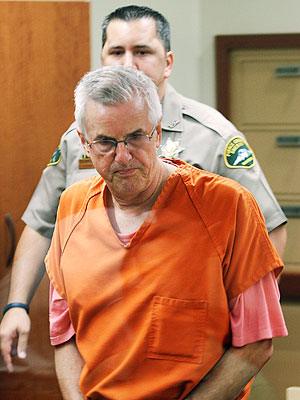"It's a hard time of year," Susan's father, Chuck Cox, tells PEOPLE. "Our daughter's still missing. Someday, we will find out what happened to her."
He added that he is not sure what to make of a West Valley City, Utah, police announcement Thursday that their investigation into Susan's Dec. 6, 2009 disappearance remains active but "has been scaled down," with a reduction in the number of full-time investigators working the case.
The announcement came at the same time that more evidence emerged of the alleged obsession Susan's father-in-law, Steven Powell, had toward her. Authorities released nearly 4,500 pictures that they say he secretly took of her at home and elsewhere.
Cox says he's hopeful that the police are still doing everything possible to solve Susan's case, but he hasn't ruled out suing the department for failing to arrest Susan's husband, Josh Powell, for her murder.
More than two years after Susan's disappearance, Josh on Feb. 5 murdered the couple's two sons and committed suicide by blowing up his house.
Cox's lawyer, Anne Bremner, says Cox "goes back and forth" over whether to sue West Valley City. "He wants them to find her. A lawsuit can have a chilling affect on things."
Cox and Bremner say they do plan to file a lawsuit against the state of Washington for continuing to give Josh visitation with his children despite what they claim were mounting concerns regarding his mental stability.
Although Cox and the police believe that Josh Powell knew more than anyone what happened to Susan, they also strongly suspect that his father, Steven Powell, should still be looked at more closely.

Steven Powell
Ted S. Warren / AP
In numerous interviews with PEOPLE, Steve and Josh Powell denied any involvement in Susan's disappearance and have suggested that she ran off with another man.
Steve Powell was prosecuted for surreptitiously photographing his neighbor's young daughters (and is serving a 30-month sentence), but the investigation also unearthed journals in which Powell described his interest in his daughter-in-law, as well as the thousands of photos, which were released Thursday to the Associated Press.
In a journal entry, Steven Powell recalls a sexually charged dream in which Susan asks him, “Do you think I would make a good wife for you?” None of the pictures show Susan naked, although there are images of her crotch and backside.
"We think he knows exactly where our daughter is," Cox says.
Once Susan disappeared, Josh sold the family's home in Utah and moved with the boys into Steven Powell's house in Puyallup, Wash., only about two miles from the Cox family.
On Thursday, families streamed to Puyallup’s Woodbine Cemetery to remember the Powell boys and other children who died tragically and to dedicate a memorial: a bronze angel inspired by the novella The Christmas Box, in which strangers learn the value of love following a child’s death.
The novella's author, Richard Paul Evans, also attended the dedication. The memorial is on a hill overlooking the boys' gravesites 75 yards away.
"We get a lot of support from a lot of people and we're going to make it through," Cox says.









